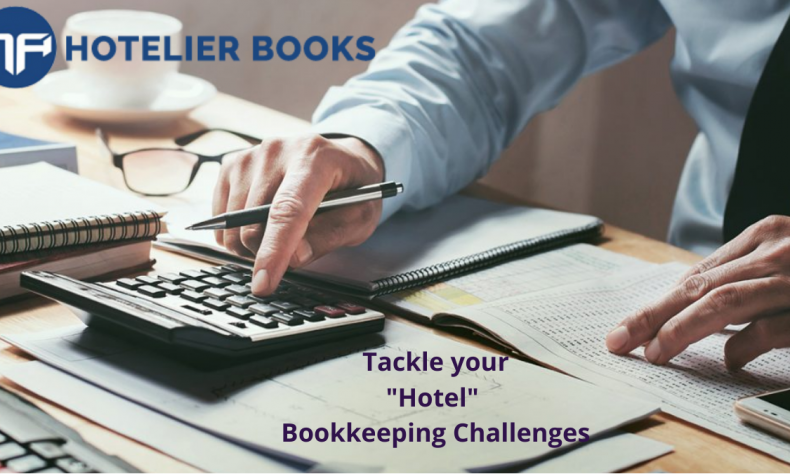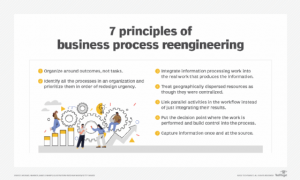
When you think of a hotel, what comes to mind? The picturesque lobby with the grand staircase. The immaculate rooms furnished in contemporary style and bedecked in fresh white linen. Guests being attended to by an attentive staff from the moment they walk through the door until they step back home after a relaxing two weeks. These are images that have been solidified in our minds by decades of Hollywood depictions in movies and TV shows. But behind every glamorous movie set there is a team working hard to make this image happen seamlessly, going about their daily work filling out forms, sending emails and crunching numbers. In this article we will review 5 key financial challenges that every hotelier must face when managing their assets well.
While it is true that there are many more challenges than the five we will mention here, these particular 5 tend to cause most concern for hoteliers as they manage their business.
At some point within your career as a hospitality professional, you have likely heard this dreaded phrase: “Our numbers just don’t add up…” Odds are good that those words played at least some part in starting you on your journey toward learning about and becoming advanced in finance.
But with so many financial and bookkeeping terms and abbreviations flying around it’s easy to get confused and discouraged. So what do all these things actually mean? We’ll break them down one by one:
Cash flow – The amount of cash coming into a hotel minus the amount going out.
For example: If a company takes in $10,000 and spends $9,500 it has a cash flow deficit of $500 for this period.
Cash – Money that is readily available to use for buying goods and paying bills. It may be currency on hand or money deposited into checking or savings accounts at a bank or other financial institutions.
Accounts Receivable – This is the total amount of unpaid invoices due from customers as reported on a hotel’s books. Accounts receivable can increase when billing customers more frequently (i.e., daily vs monthly) which allows the hotel to collect payment faster than waiting until the end of the month/period (when all customer invoices are totaled together). Accounts receivable can decrease when invoices are sent out later than the billing cycle, maintaining a longer time for customers to pay.
Accounts Payable – This is hotel’s total amount of unpaid vendors as reported on its books. Like with A/R, accounts payable will increase (or decrease) according to how late or early the hotel pays its bills with vendors.
Loan – These are funds that were borrowed from investors with most loans requiring some form of repayment with interest.
Credit Score(s) – These scores provide lenders (banks, credit card companies etc.) with information about your willingness (and ability) to repay debt over time. There are different types of scores calculated by each of the three credit reporting agencies, as well as proprietary models such as Beacon score which is used by LendingTree.
The number one challenge faced by most hoteliers: cash flow management. This lack of ability to manage and forecast cash flow can lead to a very challenging experience for any manager or owner trying to manage the financial operations. The percentage of hotels that fail within their first year is around 50% and most credit lenders agree that approximately 75% of those failures were due to insufficient funds coming in during the early months of operation.
What cash flow is in hotels: “Cash Flow reflects the net amount of cash and equivalents moving into and out of your business over a specified time period.”
Why is it important? Cash flow is integral because it is the cash that your business can use to buy inventory, pay bills and ultimately drive future profits. As an example, consider the following:
You are running a hotel with 30 rooms for rent each night at $100/night. On average you have 90% occupancy for the year. This means you are making $30,000 in revenue per month or roughly 3x your expenses ($10k).
However, if you are only able to keep 70% of those rooms filled (due to lower demand or higher prices) this would mean earning only $21,400 per month which is still greater than 70 percent of your monthly expenses but not nearly enough to cover all of them (Source).
What causes cash flow problems: Cash flow challenges are often caused by a number of factors. The most common causes include:
Transaction timing mismatch – cash coming in does not match the timeline for when expenses need to be paid, meaning that you have less money than you need at any given point. This often shows up as accounts receivable and can happen when your customers pay their bills later than expected or due to slower payments from clients/customers who were slow to pay (Source).
Unforeseen expenses – Expenses can pop up out of nowhere, resulting in additional expenses at times where there is slowed customer spending/weak cash flows (Source).
Credit restrictions on purchases – some businesses may rely heavily on credit such as hoteliers who use financing options such as factoring to finance their daily operations. If this line of credit is restricted at a time where you need it the most, your ability to buy inventory or pay operating expenses can be severely impacted (Source).
What happens if I don’t solve my cash flow problems: Without proper cash flow management, a business runs the risk of delaying payments with its suppliers and employees which could affect performance for future months. In extreme cases, businesses may even face legal trouble due to breaching contract terms with these vendors/employees (Source).
If a business does not have enough money coming in from customers, it might also turn to debt financing such as loans from banks or credit card companies. These debts often require repayment with interest that may further stress out the business financially. Even worse, if a business is unable to make regular payments on these debts, it could damage their credit and this would mean that obtaining financing in the future could be significantly more difficult (Source).
How can I solve my cash flow problems: When faced with such challenges there are several methods that hoteliers can employ to improve their financial situation. The most popular options include:
Decreasing expenses – One of the simplest ways to boost cash flow is by decreasing expenses which could include anything from cutting back employee hours to scaling back on amenities offered at your property. This method often results in a short-term gain but can have longer-term drawbacks if done too quickly or without being aware of all the repercussions associated with making such a decision.
Creating an emergency fund – another common practice is to keep some cash on hand just in case there are unforeseen circumstances. Hotels may choose to maintain 6-12 months of expenses as part of their reserve fund and liquidity plans. This strategy can help protect the hotel from unexpected shocks such as equipment failure, property damage, etc. which could cause them to quickly deplete funds.
Credit line management and capture strategies – in certain cases it might be possible for hotels to use factoring or asset-based lending options when they need additional capital to cover immediate expenses such as payroll or tax payments. Many experts recommend only using these financing sources when absolutely necessary because the costs associated with them can add up quickly.
Credit line management – A great way to manage cash flow is by properly managing credit lines. This includes using a payment timeline calculator, which can help you estimate when your payments will be due and how much extra time you will have before incurring any additional interest charges. It also helps to write a list of all the different accounts that you’re paying from one single location so that you can easily see where your money is going.
Spend less time searching for information: In case you decide to hire an accountant or bookkeeper, make sure that they are well-versed in hotel bookkeeping practices as this might significantly benefit your business in the long run. You should aim to work with someone who understands common challenges such as how to account for reimbursable expenses or how to properly classify income and expenses.
Where should I hire help: One of the best places to find a reliable bookkeeping service tailored for hotel business.
Bookkeeping services are generally offered by certified public accountants (CPA), who can offer valuable insight into hotel accounting practices while also saving you time since they are already skilled in this area. To learn more about what hotelier books could do for your business bookkeeping, feel free to contact us directly and schedule a demo.






